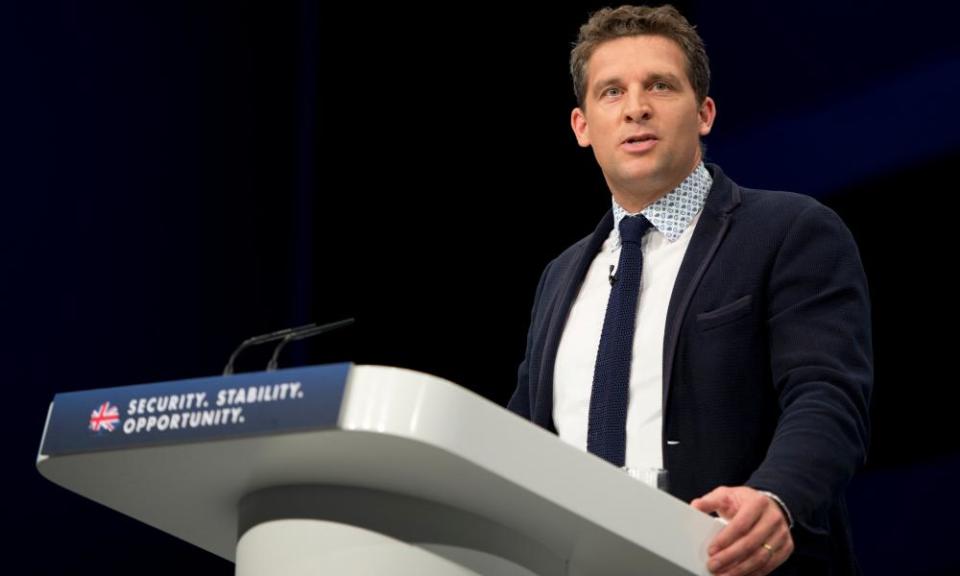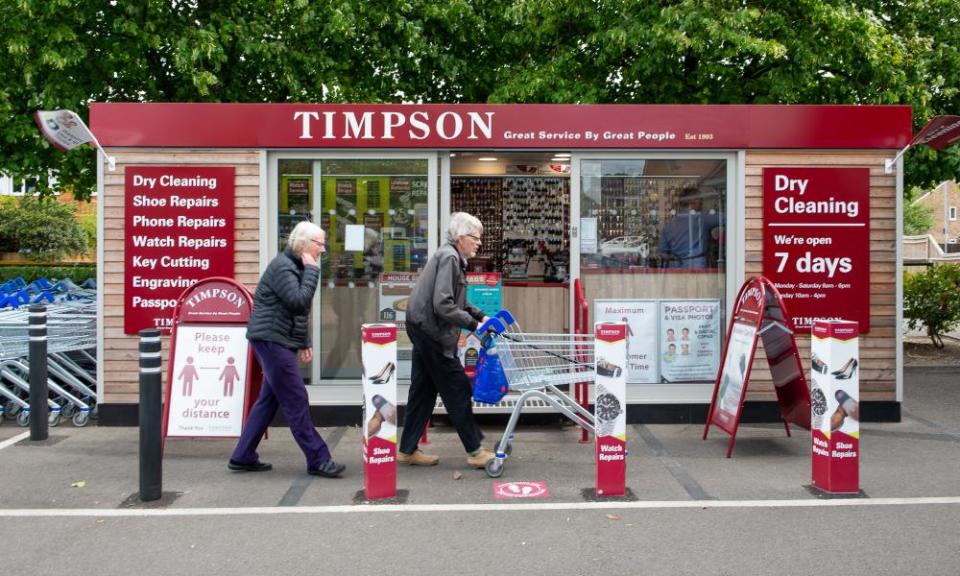‘There is another way’: why Timpson boss hit out at PM’s chain-gang plan

For James Timpson there is nothing charitable about employing former prisoners. The head of the high street shoe repair and locksmithing firm Timpson – which had a turnover of £209.3m last year – insists he is the “most commercially minded person you will ever meet”, but that employing ex-offenders makes good business sense because “the people we recruit from jails are so bloody good”.
Since 2008, when he opened a shoe repair workshop in HMP Liverpool (no key-cutting skills were practised), his company has employed more than 1,500 ex-prisoners. Just four have returned to jail. Many of those who turned their backs on crime – including some with drug and alcohol issues – have progressed to senior roles in the company, including a current board member.
Timpson created something of a stir last week when he posted his views on the government’s new crime-fighting strategy. The prime minister and home secretary spoke of forming “chain gangs” of offenders, dressed to make the public fully aware of who was picking up their litter.
He tweeted: “Instead of making offenders wear high viz jackets in chain gangs, how about helping them get a real job instead? In my shops we employ lots of ex-offenders and they wear a shirt and tie. Same people, different approach, a much better outcome.”
The tweet received more than 130,000 likes and 23,500 retweets. One, from the sports broadcaster Gabby Logan, called Timpson’s policy on ex-offenders “brilliant and helping society a lot more than what is currently being mooted by the man who resides in No 10”.
Timpson spoke to the Guardian from his home near Chester, where he and his family are isolating after being pinged over a possible contact with a Covid carrier. Despite politics being off the menu (his brother, Edward, is the Tory MP for Eddisbury in Cheshire and a former minister), he does not fall short of criticising prison policies, drafted by politicians on all sides, past and present – and he is clear the chain-gang notion is a “PR stunt”.
Instead of making offenders wear high viz jackets in chain gangs, how about helping them get a real job instead? In my shops we employ lots of ex offenders and they wear a shirt and tie. Same people, different approach, a much better outcome.
— James Timpson (@JamesTCobbler) July 27, 2021
He reports, enthusiastically, on a recent visit to the military prison in Colchester, which operates a regime aimed primarily at rehabilitation. He says there is still discipline and lots of physical activity, but allied with intensive mentoring and career guidance programmes. The outcome is that more than half the inmates held there, since the focus moved away from punishment, have returned to the forces they came from. He says it has a bigger budget than civilian jails, but asks why the model cannot be transferred to current penal policy, given the £16bn annual cost of reoffending to the public purse?

He switches to the root causes of crime. Again, he knows his subject well, despite his privileged background. His parents successfully fostered no fewer than 92 children, many from within the care system, who had emotional and educational needs. He says many children in care suffer “attachment disorder” caused by being rejected in their infancy, which leads to them finding it difficult to form loving, trusted relationships with other people and, particularly, manage their dealings with authority. This brings us back to what he says is the main issue: “What are we going to do with people we release from prison?”
He points to the daily release on temporary licence (mainly curtailed now, through Covid) that gives prisoners huge confidence to face the challenges of the workplace. He quotes a time when 10 such prisoners were managing his shops: “So, we have people waking up in prison, going out to a trusted position, then returning to jail to continue the punishment part of their sentence.”
Returning to his tweet, Timpson says asking offenders to do jobs the public services are already performing is unfair on those who usually carry out these vital tasks. He has a good friend who runs a local community refuse team, who is very proud of the work he and his team do. “I don’t think he would want people coming along, on what is basically a PR stunt, to do what he and his team take very seriously.”
He added: “I am open and honest about what we do. I am really proud of my colleagues from prison for doing so well, and I don’t think we should keep it quiet. After all, I am employing people who have stolen things, burgled houses, robbed banks even, to – among other things – make keys for our customers.
“So there’s a big element of trust here. And while we may have customers who choose not to give us their custom due to that, which I understand perfectly, ironically – and this was obviously not our intention – I think we have more people coming to our shops because of what we do, rather than avoid us for it.
“They clearly trust us because we’re picking really good people from prison.
“Unless we stop putting offenders down, they will continue to distrust us and carry on down the paths their lives have led them to. Our evidence shows there is another way, which most certainly does not involve showing them up in public.”

 Yahoo News
Yahoo News 